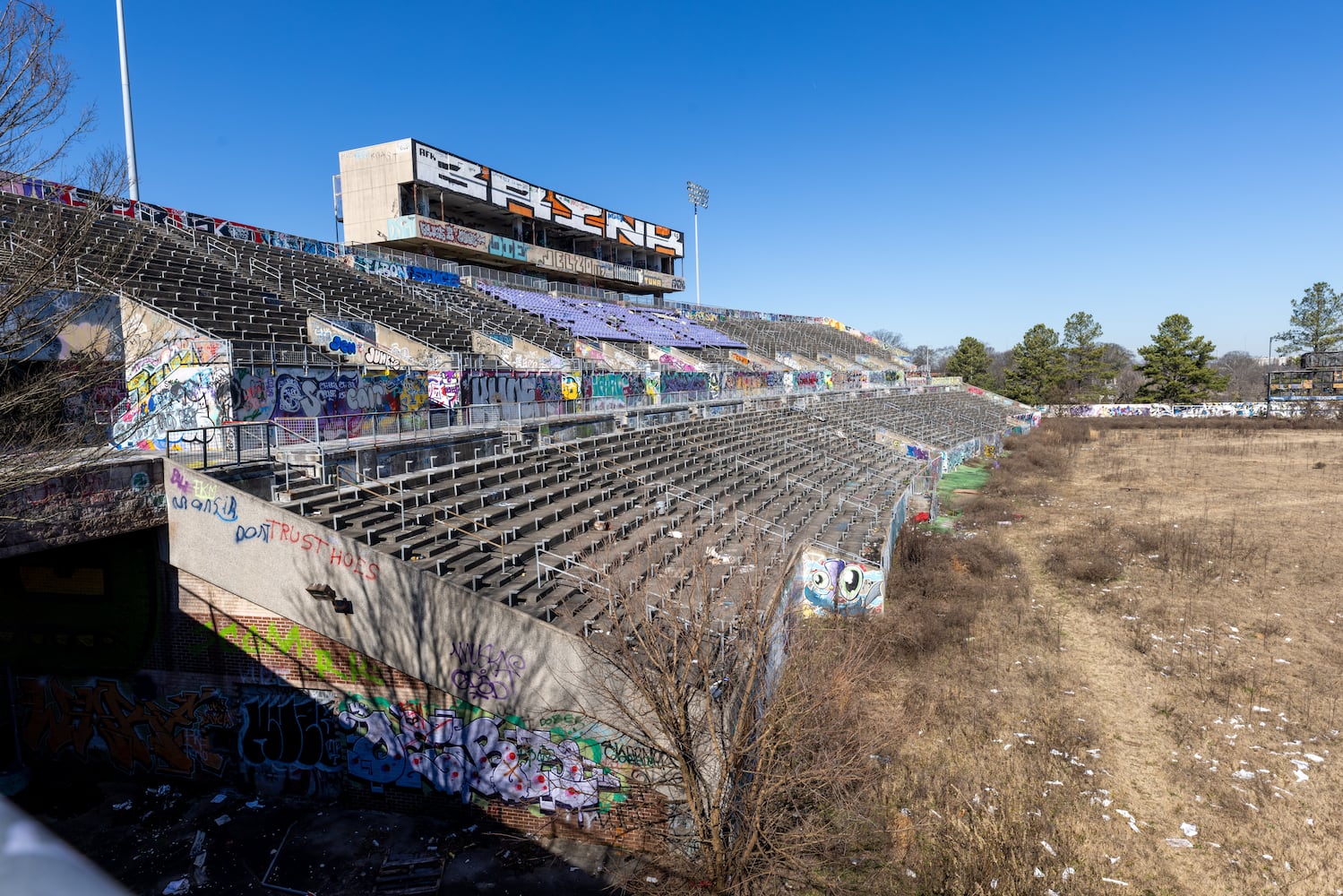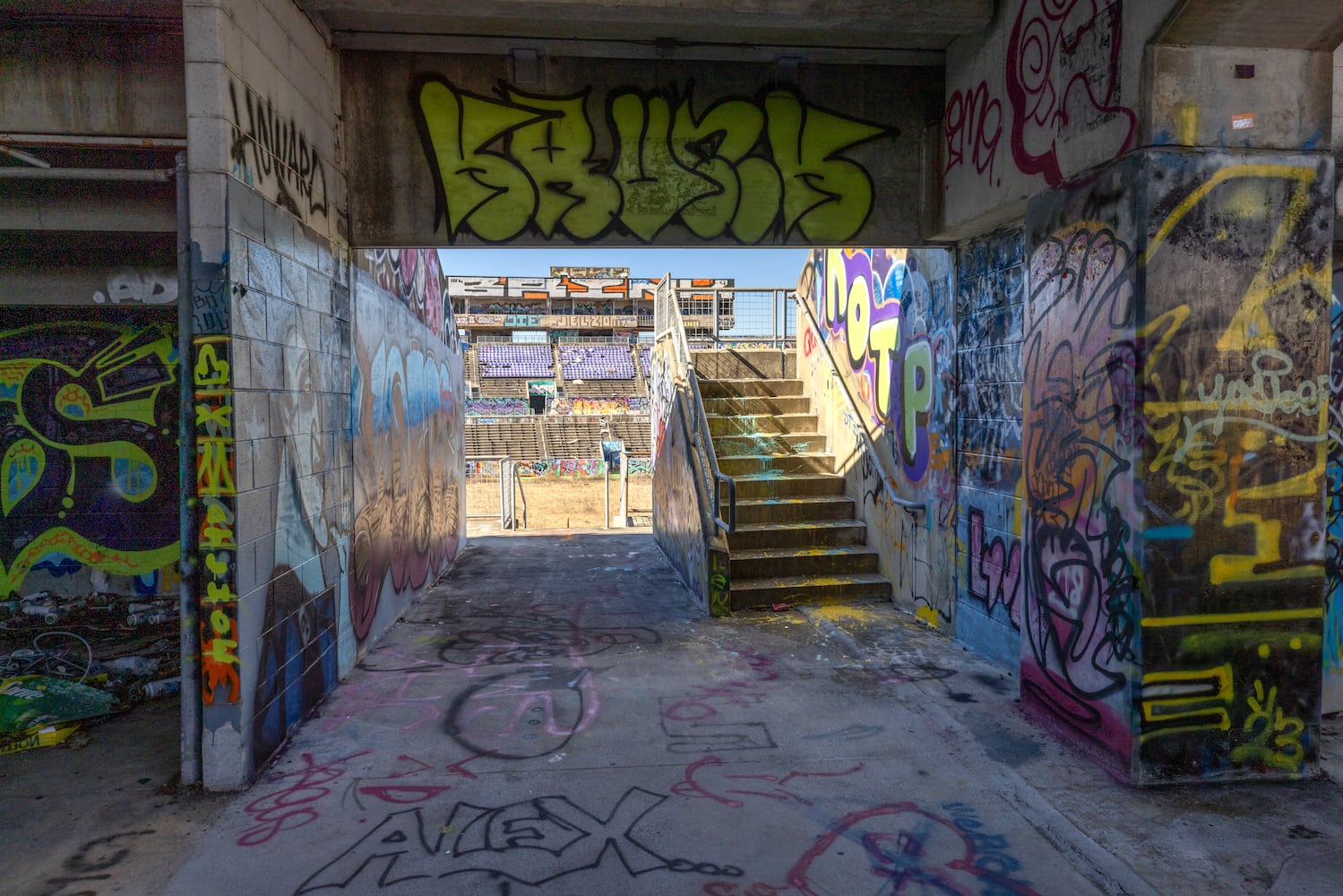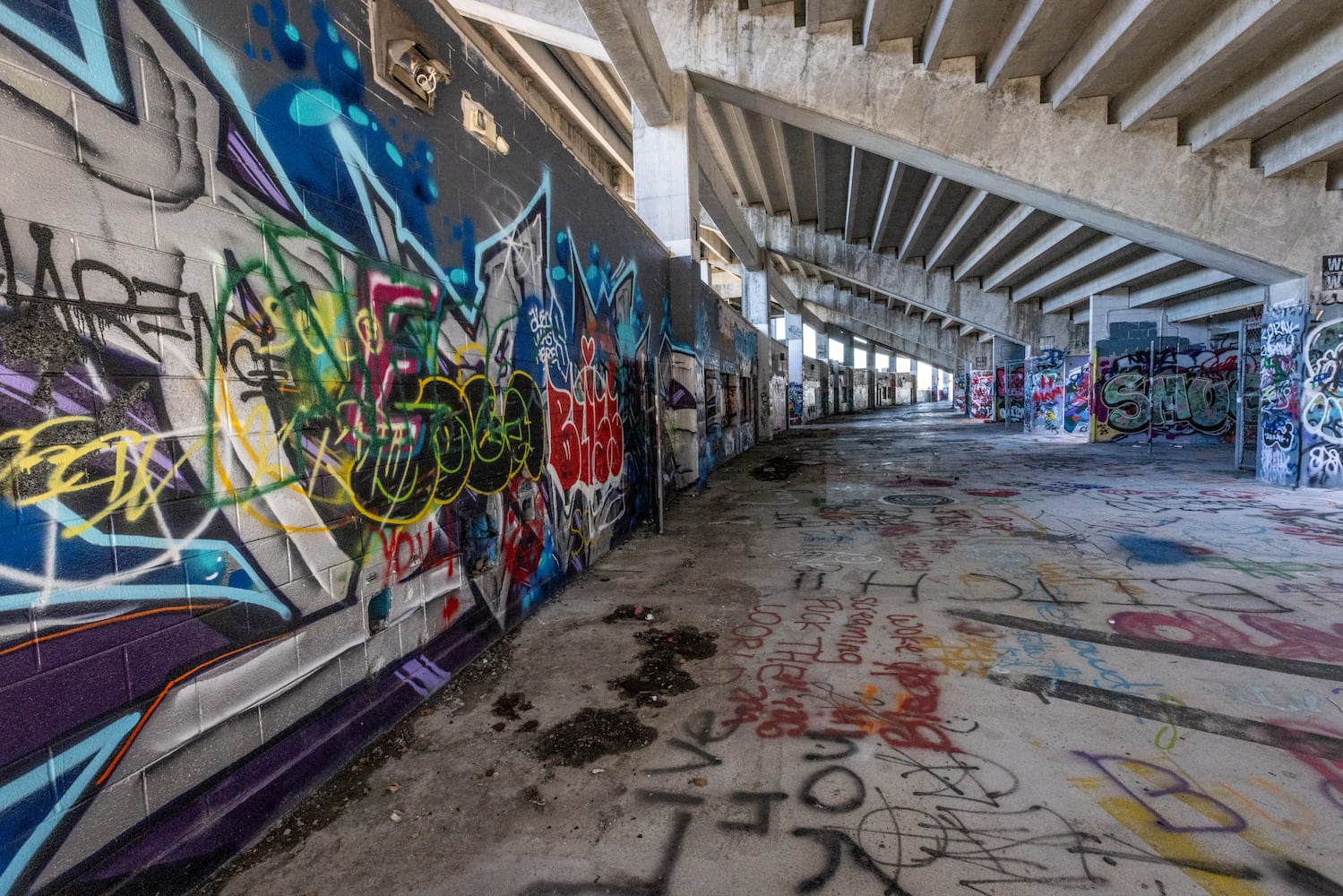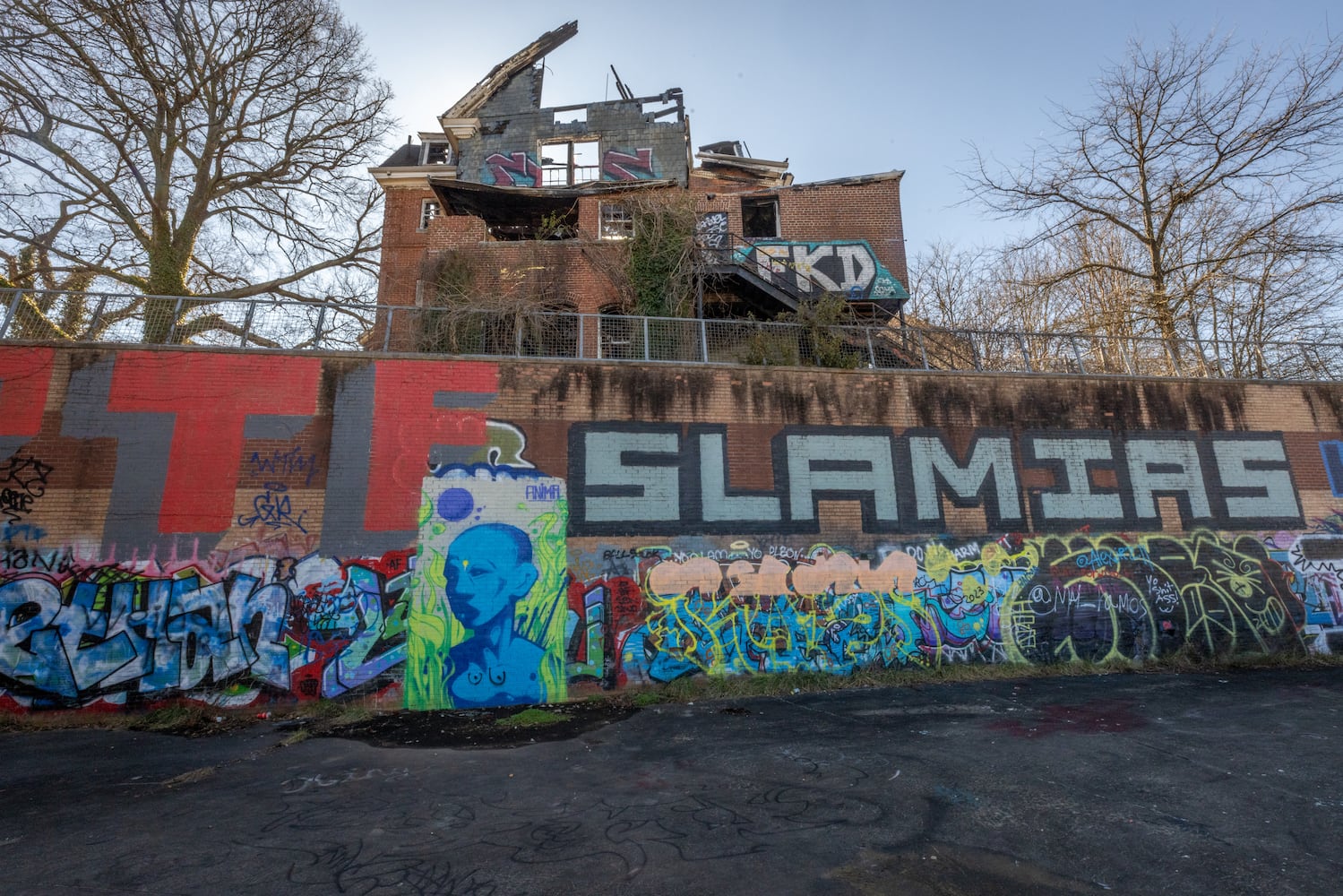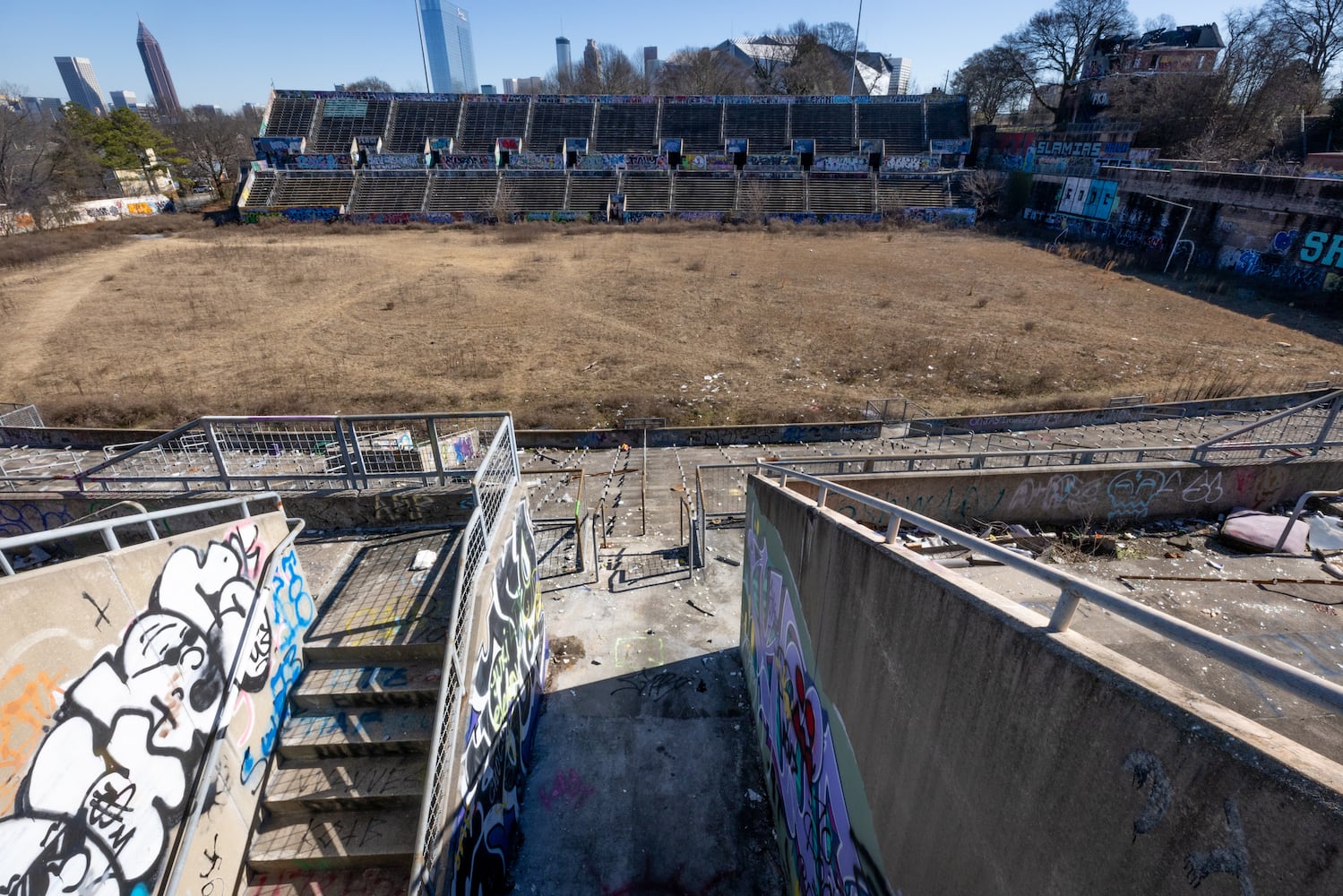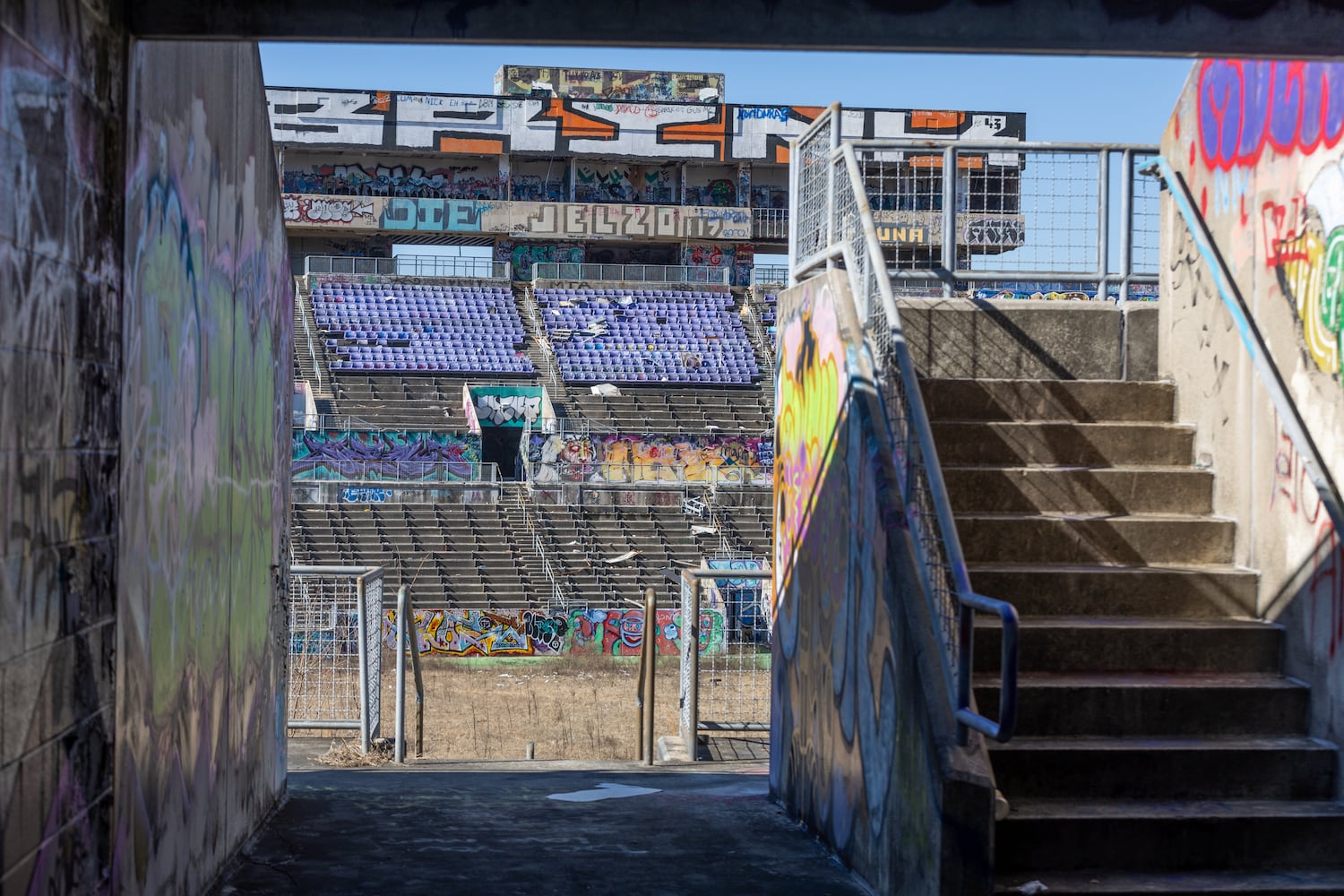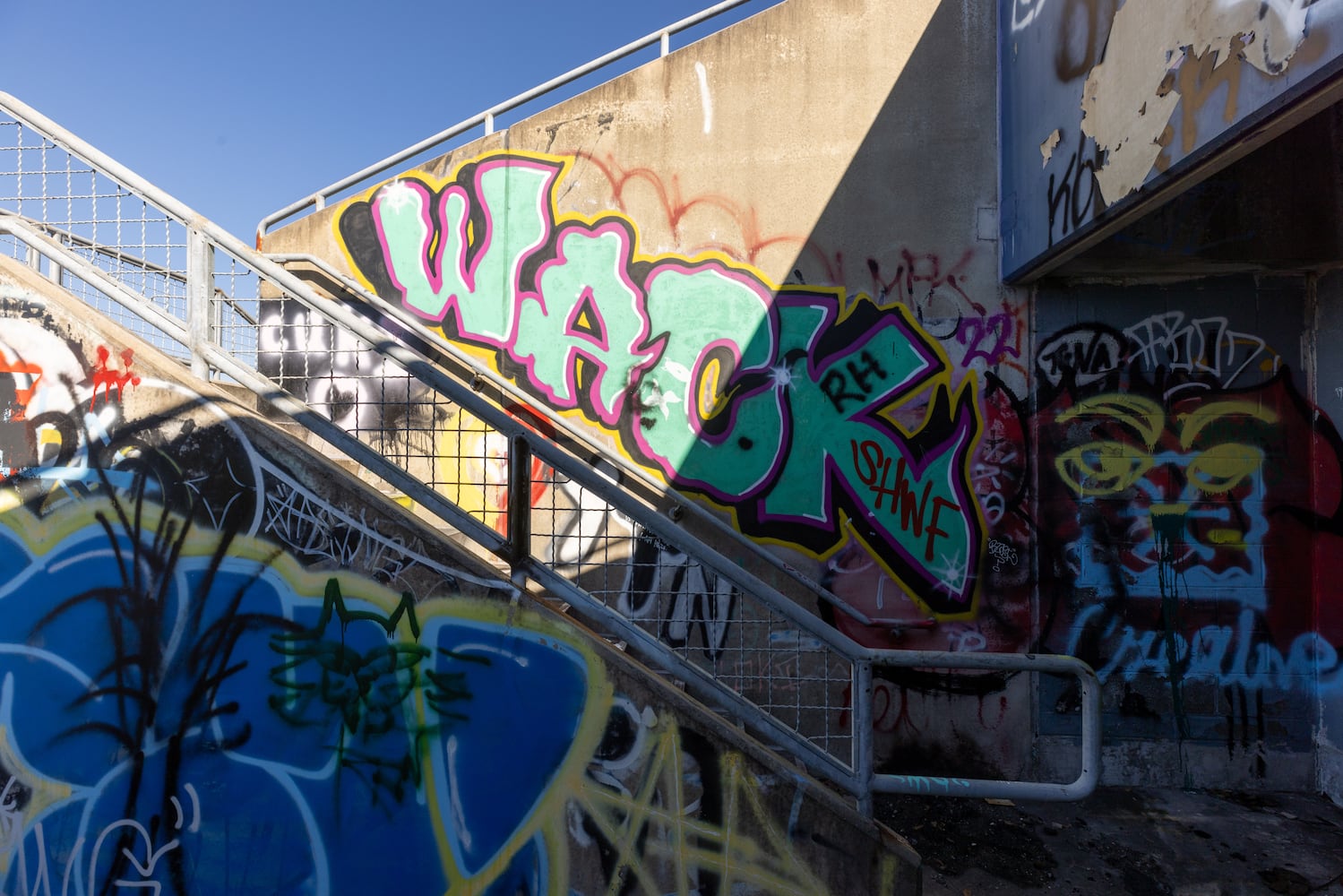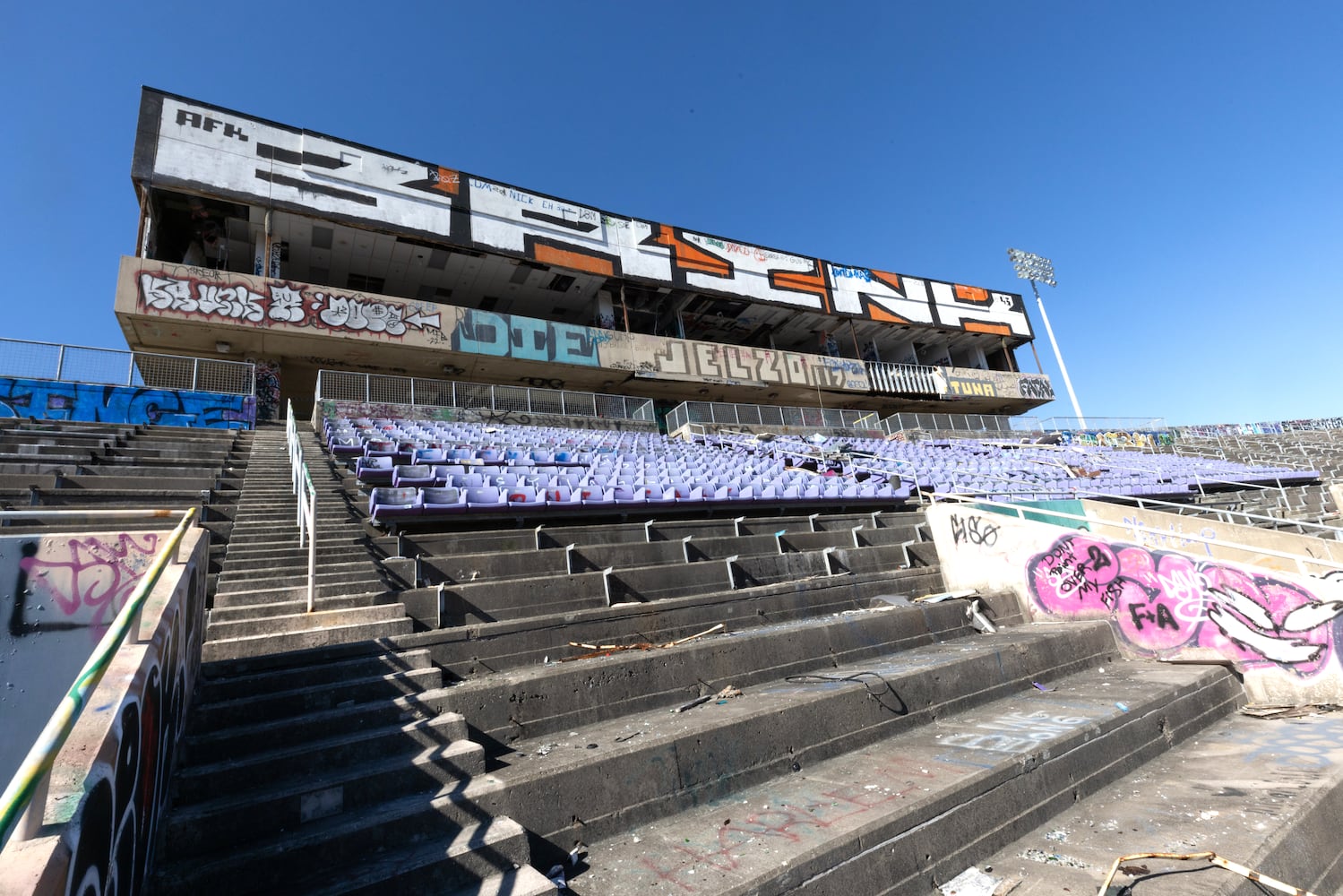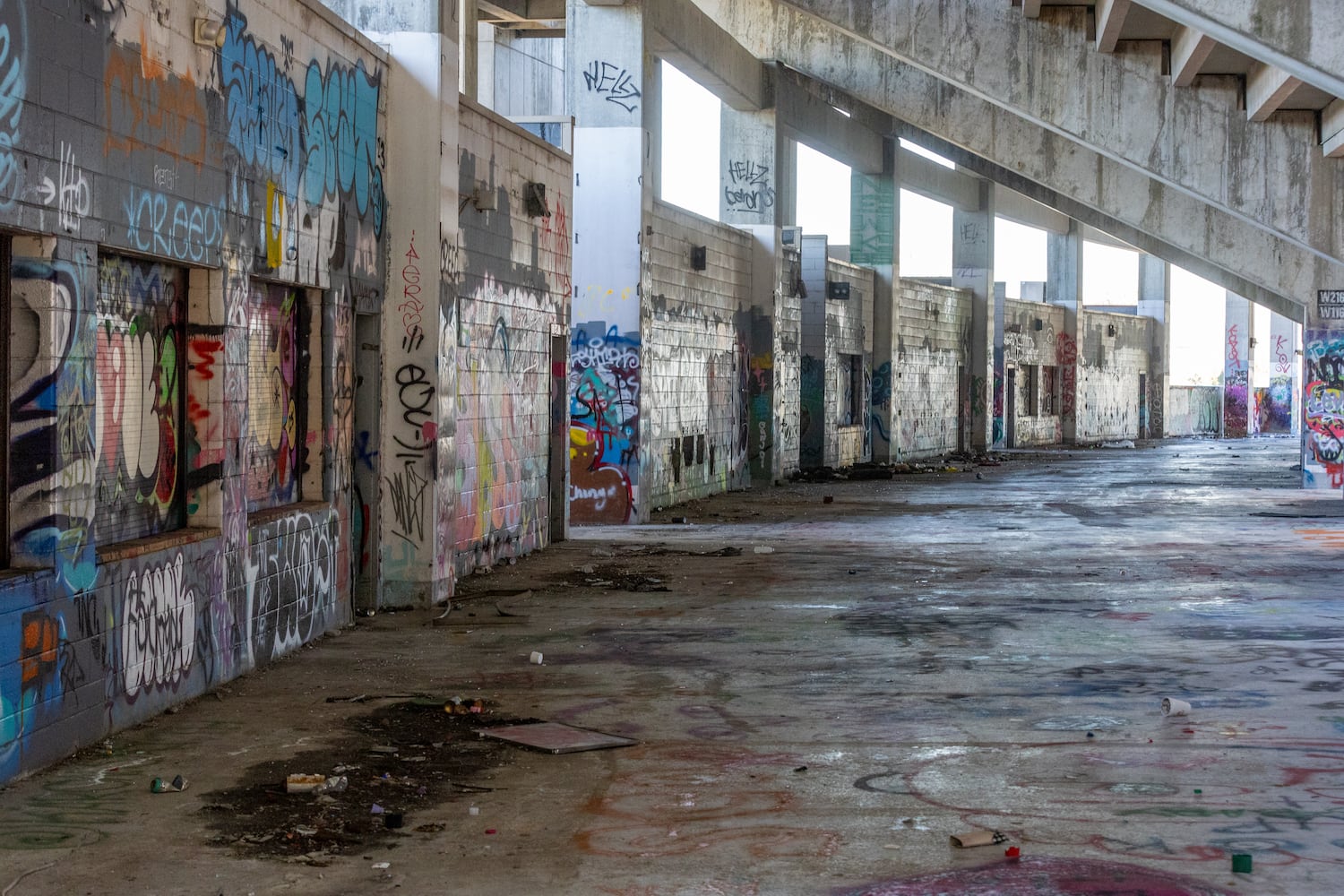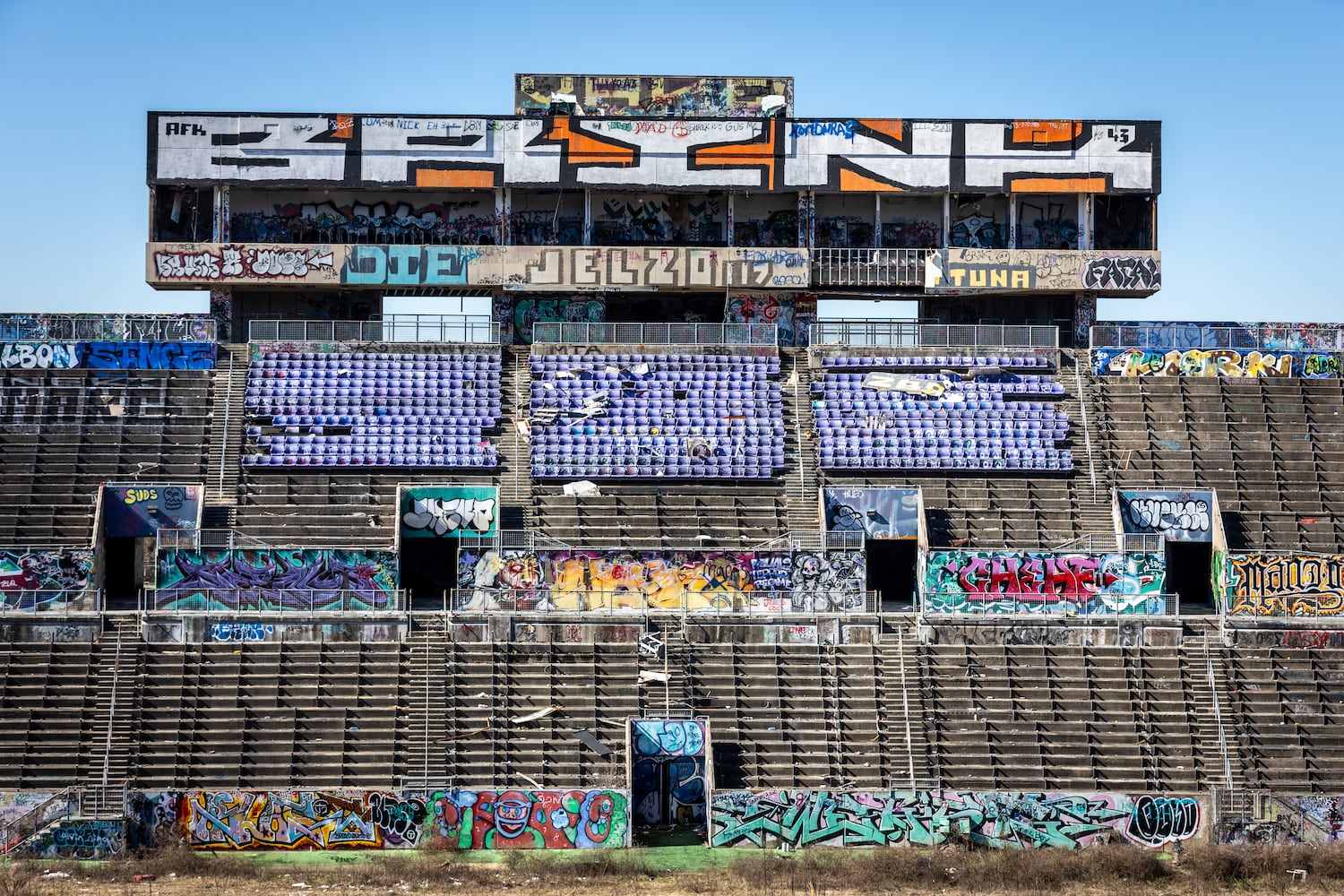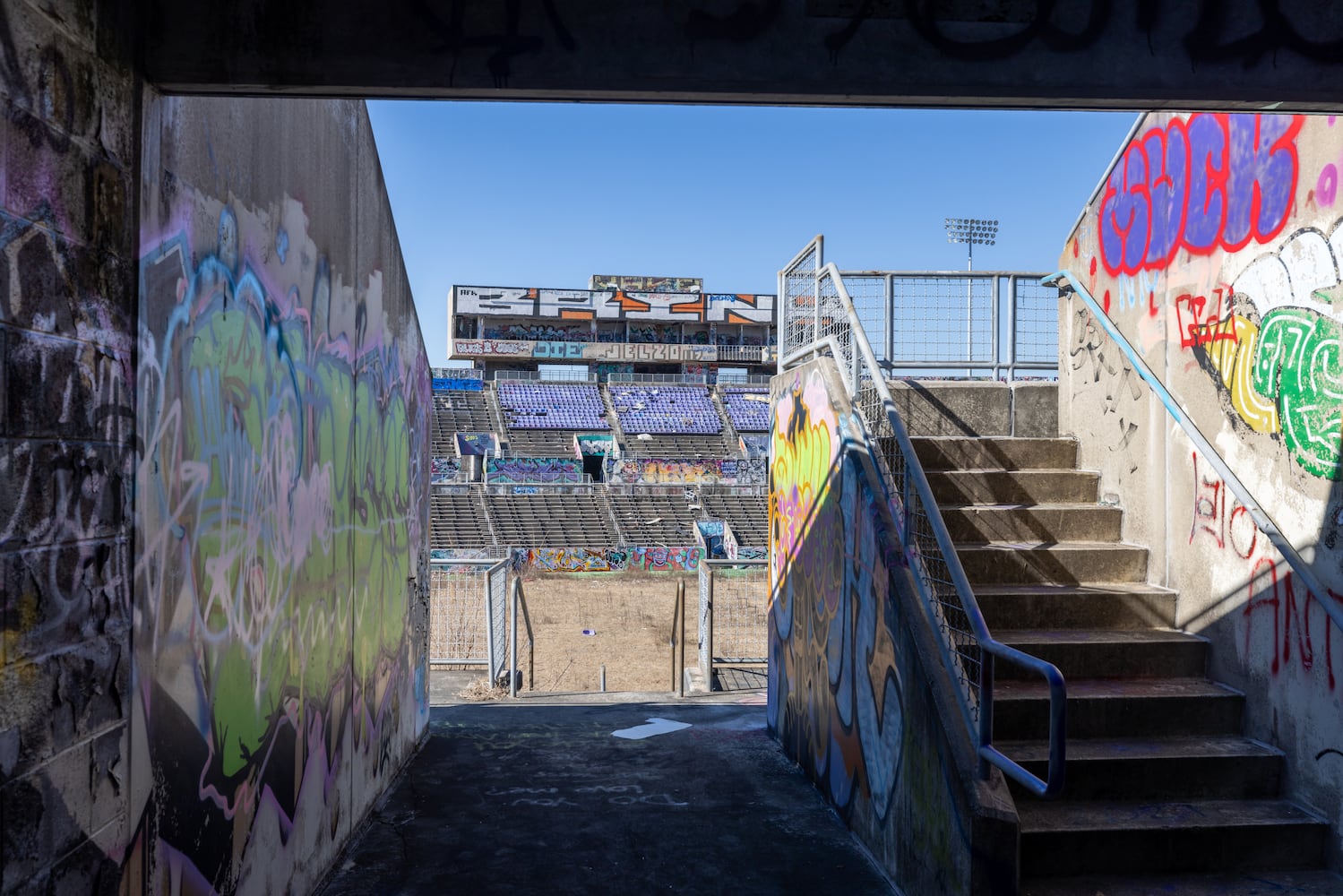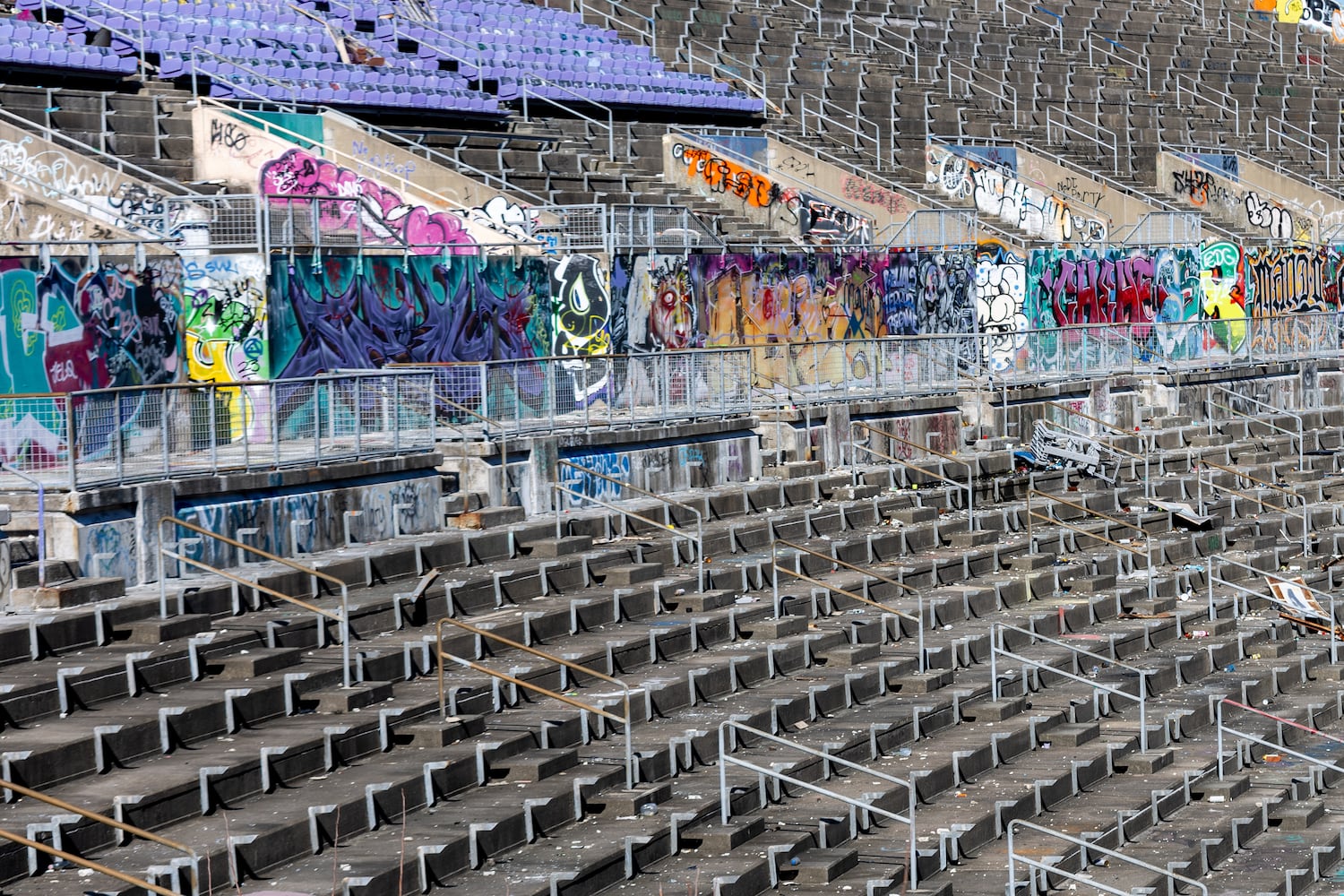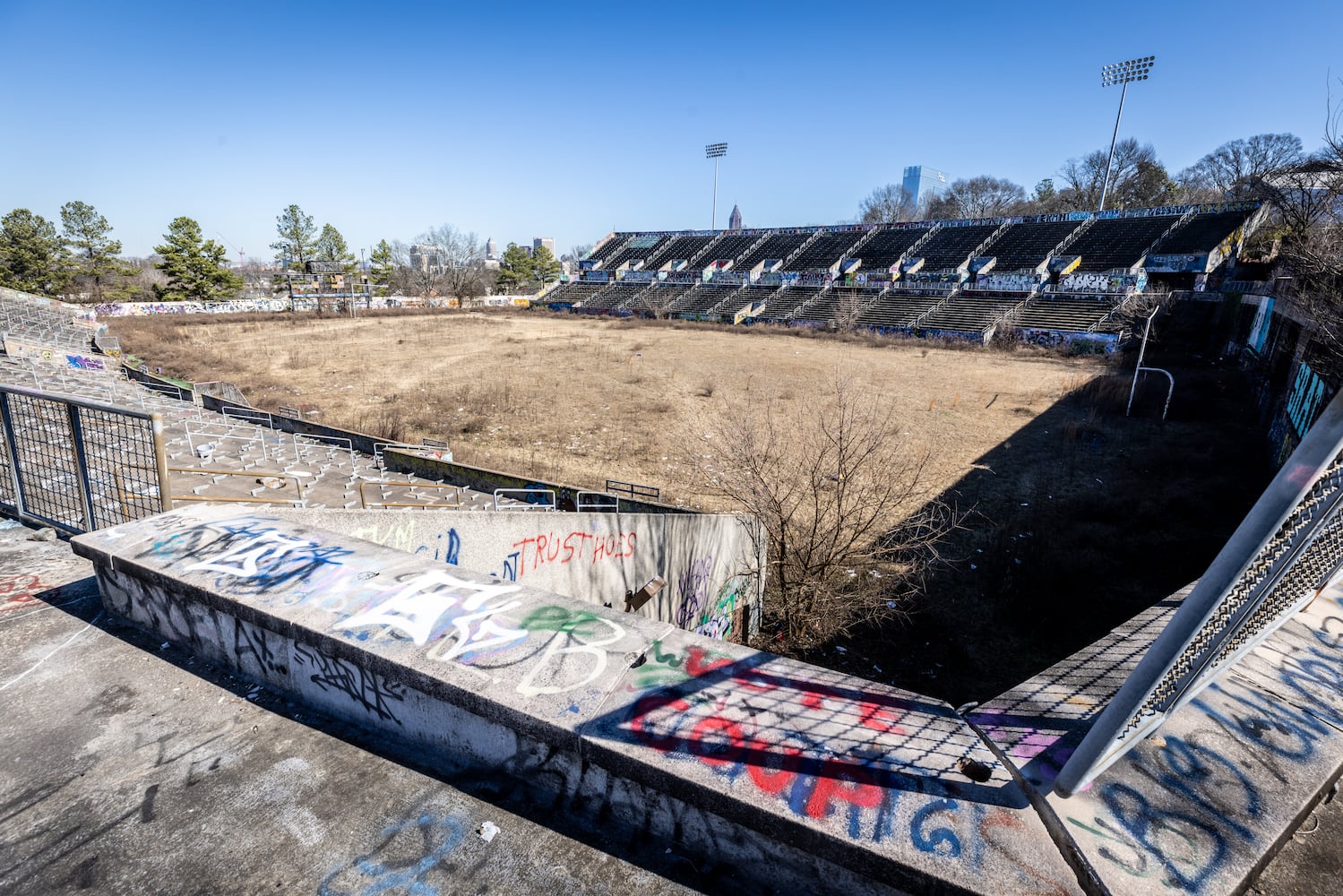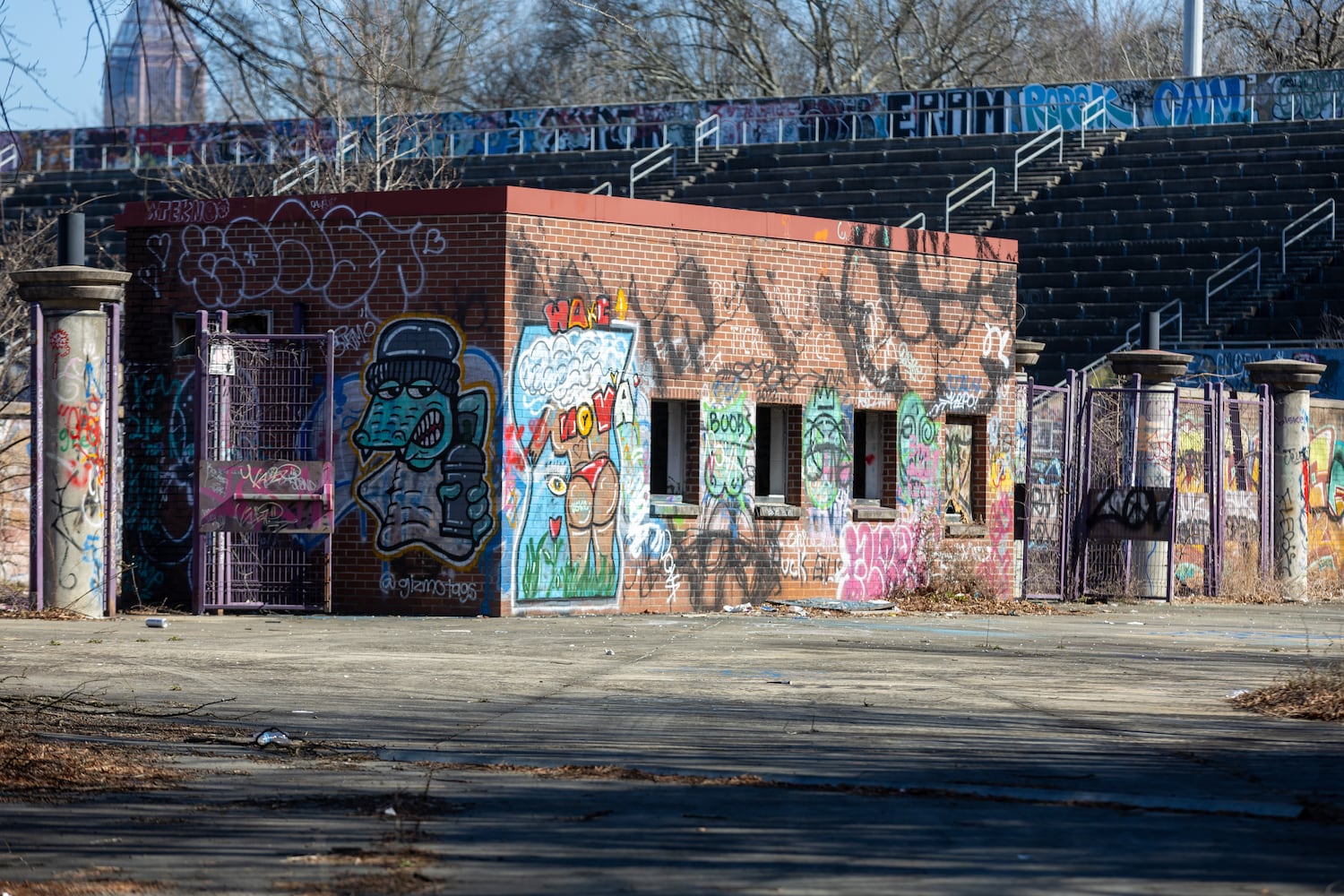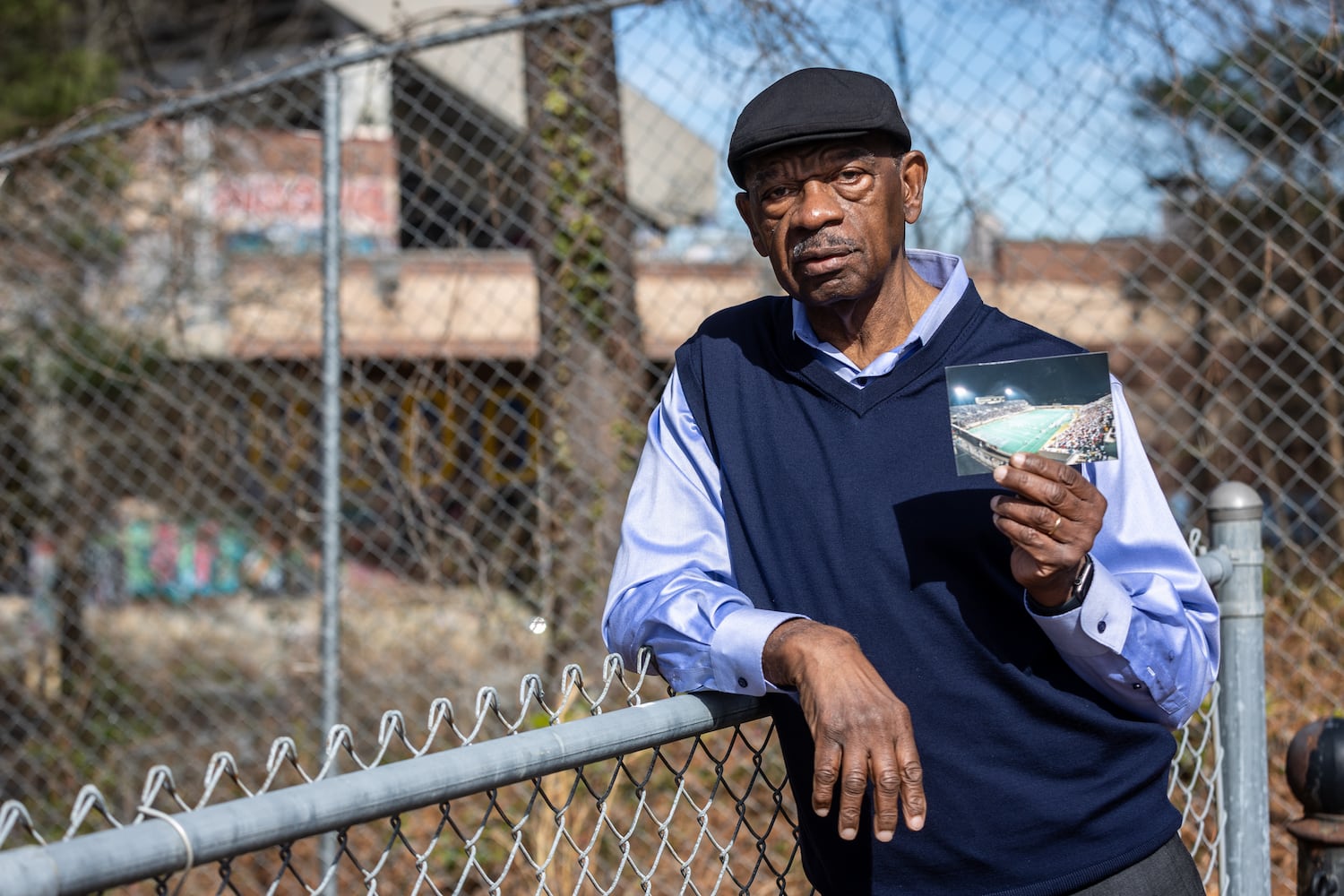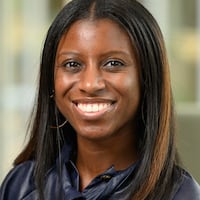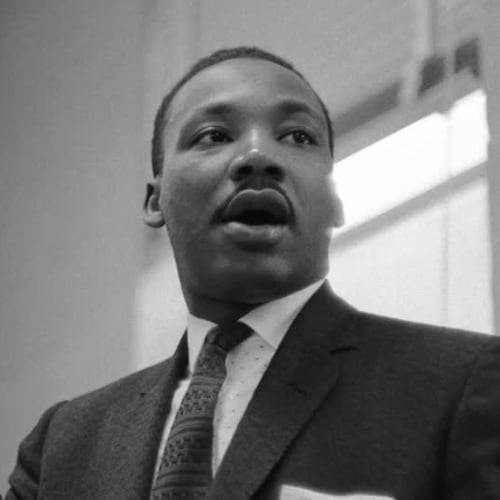Greg Thompson grew up at Morris Brown College’s Herndon Stadium.
Born just two years after the stadium opened in 1948, the 73-year-old Thompson has experienced it at every stage.
In elementary school, he climbed the fence to sneak in and watch high school football games. As a Morris Brown student, Thompson’s glory days were on the field as the Wolverine’s quarterback. And as the team’s football coach and athletic director, he played a role in rebuilding Herndon into one the major college football stadiums in Atlanta and a key venue for the 1996 Summer Olympics.
“I went from kind of climbing the fence to get in games, to ending up with the keys to the stadium,” Thompson said.
All of that has changed.
Credit: Steve Schaefer /
Credit: Steve Schaefer /
The stadium stands abandoned, in disrepair after years of neglect with heavy chains and padlocks blocking all entry. Weeds have replaced the carefully manicured turf. Overgrown trees and bushes litter the concourses, while graffiti marks all of the walls.
Morris Brown, after two decades of financial disarray, doesn’t even own the facility. The new owner, Clark Atlanta University, is planning to tear it down to make way for development.
“It’s heartbreaking to know that we were able to have a facility like that and the condition that it’s in now,” Thompson said. “It brings tears to your eyes, but I’ve got a lot of memories.”
For many, memories are all they have.
The original Herndon Stadium was torn down and rebuilt in 1994 as part of the 1996 Olympic effort that would bring field hockey to the facility. It is now being eyed as a site for potential residential towers amid outcry from alumni and community members saying it is a historical landmark that should be preserved.
Direct Invest, the developer that has a 99-year lease agreement with CAU, has proposed an estimated $1.5 billion project on about 12.5 acres around Morris Brown. That would include Herndon Stadium, said Carlton Brown, a principal at Direct Invest.
CAU President George French said the project will bring economic development opportunities to Vine City, as well as provide affordable housing for students and faculty.
“I want to go back to a time when I had faculty members that could live in the neighborhood and walk to the university,” French said.
The college and developer have ideas for mixed-use buildings with mixed-income housing and neighborhood retail, focusing on restaurants and small, Black-owned businesses. But final plans have not been set.
“We’re still listening to the community and putting together the master development plan,” French said.
French and Brown both said the new development will preserve the stadium’s memory and history in some way.
That history is long and deep.
Credit: Steve Schaefer /
Credit: Steve Schaefer /
The family of Alonzo Herndon, Atlanta’s first Black millionaire, donated a large sum of money to build the $400,000 stadium in what was known as the Diamond Hill neighborhood. He was born a slave before opening up a string of barbershops and then the Atlanta Life Insurance Company.
“It was an investment into Morris Brown’s community,” said David Mitchell, the executive director of the Atlanta Preservation Center. “Into the academic world of Black students, to grow and advance their skills.”
Not only was it Morris Brown’s home stadium, but Black high schools would also use it for football games. And Georgia native Ray Charles recorded his 1959 live album, “Ray Charles: In Person,” at the stadium.
In the early 2000s, the facility was briefly used as the home field for the Atlanta Beat, a professional women’s soccer team.
Sold and abandoned
Morris Brown College is now a shell of its once great glory.
The college now controls only three buildings on campus. Many of the other structures on campus are burned out or have been torn down. Herndon Stadium is one of the last structures to still stand.
For years, several of the campus’s properties were tied up in litigation between Morris Brown, the city of Atlanta and Clark Atlanta over a lease agreement from 1940. The Georgia Supreme Court ultimately ruled that the land that Herndon Stadium sits on belonged to Clark Atlanta.
But that ruling came in 2017, three years after Morris Brown was forced to sell the stadium.
Credit: Steve Schaefer /
Credit: Steve Schaefer /
Despite plans to demolish the stadium, Olubunmi Jinadu sees a potential future.
Jinadu, a senior advisor for the Baltimore-Maryland 2026 FIFA World Cup Host City bid organization, told The Atlanta Journal-Constitution that the stadium should be restored and used for youth soccer or small professional leagues.
“Look at the kids that are going to school in this neighborhood,” Jinadu said. “Imagine them walking by a (refurbished) stadium that their parents saw abandoned. That inspires young men and women.”
Thompson said the stadium should be recognized and remembered for what it has done for the Black community.
“Regardless of what they do with it, there should be some type of memorial to that spot,” Thompson said. “That was the only place where Blacks could come.”
About the Author
Keep Reading
The Latest
Featured
